How Cities are Working to Help At-Risk Communities During COVID-19
.png)
Zencity
The Platform for Community Trust
At-risk communities are not only those who are most vulnerable to the COVID-19 virus, often due to limited access to healthcare, mobility, and reduced hygiene, but these people are also most vulnerable to the economic and social impacts of the pandemic. Think about the social problems in the U.S. before COVID-19: half a million people experiencing homelessness, 92% of U.S. seniors have at least one chronic health condition, and 40% of households have less than $400 in emergency savings. Each of these becomes an exacerbated challenge when responding to the virus, and some of these problems worsen even more due to the economic impact of the pandemic.
Gladly, at-risk communities are not missing from the focus of many local government leaders and communities across the U.S., offering additional support to those more vulnerable. Through the power of the Zencity Network, we see inspiring work led by cities and counties actively helping at-risk communities prepare for and protect against the coronavirus outbreak and its implications. Here are some examples:
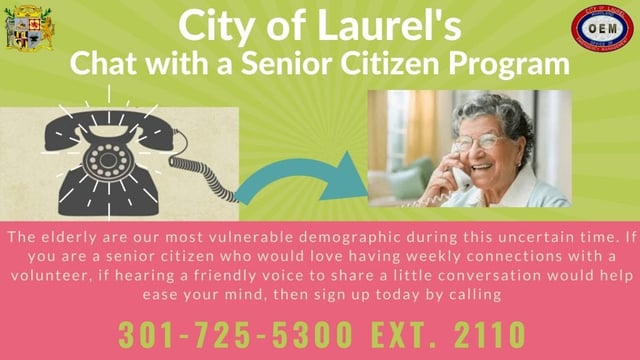
According to the World Health Organization (WHO), the virus can infect people of all ages, with older people, especially those over 60 or with underlying conditions, at higher risk. However, it is not just the heightened risk of infection affecting the elderly. Mandatory social distancing creates new challenges for a population that is already struggling with restricted mobility, financial insecurity, and loneliness. Local governments understand that they must protect our senior citizens, now more than ever.
A simple measure cities can take to assist homebound senior citizens is delivering groceries and meals, as Santa Clara, CA, Jackson, MI, West Sacramento, CA, and San Antonio, TX are doing. Miami, FL, also offers free in-home COVID-19 testing to minimize seniors’ exposure to risk. Another great example is cities that are joining forces with retailers to create a safer shopping space for senior residents by reserving time earlier in the day for them to shop (See the great work of Mission Viejo, CA, Portland, ME, Pompano Beach, FL and Corona, CA). Not only is this limiting the risk of their exposure to others, but early hours are providing seniors with restocked shelves for a better chance to find what they need. Last, we must remember that seniors are more likely to be isolated in a time of social distancing. San Antonio, TX, is encouraging the local community to join socialization and friendship programs for its elderly residents, and the city of Laurel, MD, has created a ‘Chat with a Senior Citizen Program’ to help seniors battling with loneliness during the pandemic.
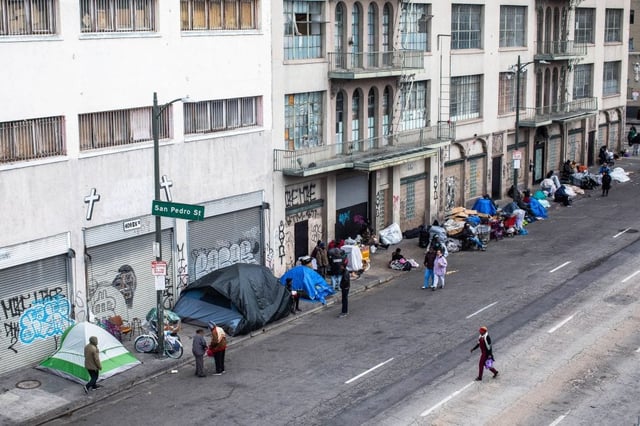
Keeping it simple – staying home as a safety measure during the coronavirus outbreak is not an option for people experiencing homelessness. The first problem is limited access to information about the virus or ways to maintain hygiene. Cities such as Miami, FL, Evanston, IL, and San Antonio, TX, are tackling this problem by distributing informational flyers and hand sanitizers and placing hand washing stations where local homeless congregate.
The CDC has recommended aiding the homeless with COVID-19 by offering them isolation housing, and many cities are working tirelessly to do so, including Detroit, MI, the City of Encinitas, CA, and Edmonton, CA. When shelters are not available, local governments can make the most of primarily empty hotels now that tourism has significantly dropped. Seattle, WA officials are funding emergency hotel rooms, as are West Sacramento, CA, and the County of Riverside, CA. After the virus forced multiple shelters in the city of Las Vegas, NV, to close, the town turned a parking lot into a “homeless shelter” with social distancing markers. Toronto, CA, also offers transportation to isolation and assessment centers.
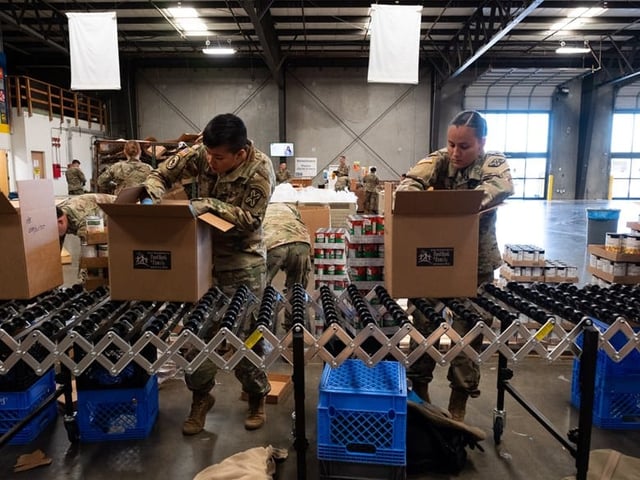
Necessary measures taken to combat the virus have expanded the number of people dealing with financial uncertainty, with businesses reducing working hours or closing altogether. The challenge of facing the COVID-19 pandemic in low-income communities is one to be addressed quickly and comprehensively. How can you regularly wash your hands if you don’t have access to running water? How can you maintain social distancing when many live in a shared, small space?
Detroit, MI, is ensuring all its residents have access to running water by announcing a restart plan for locals who need their water turned on. Other cities, such as San Antonio, TX, and Mesa, AZ, are suspending disconnections of water or electricity. Another great way cities are helping local residents who are financially affected by the pandemic is by placing a moratorium on all evictions. West Sacramento, CA, Bexar County, TX, and Beaverton, OR are just some cities that can do so. Local government leaders are diligently working to aid residents in discovering and understanding the funds and support programs at their disposal. A great example is the city of Doral, FL, which has published a letter from Mayor Bermudez summarising relevant points about the “Coronavirus Aid, Relief and Economic Security Act.”
The coronavirus outbreak has abruptly disrupted the daily lives of almost every child across the U.S. With most schools and places of public gathering closed, parents are trying to keep children occupied, feel safe, and keep up with schoolwork. Local governments can assist children and their parents create a stable routine and aid with food, educational initiatives, and other recreational activities while complying with social distancing guidelines.
Many cities nationwide are collaborating with their school districts to continue providing meals to school-aged children by delivery or pickup. Some great cities leading initiatives to feed local children are Bettendorf, IO, Santa Clara, CA, Pompano Beach, FL, Corona, CA, San Antonio, TX and Jackson, MI. To help children in the community continue to develop their skills, Sugar Land, TX informs residents on different resources available for at-home learning. Some local government departments are finding creative ways to entertain local kids and spread joy. The Norwood Recreation Department and Suisun City Fire Department held an “Easter Egg Delivery.” The Easter Bunny hopped between local houses for several days, bringing smiles and sweet surprises to young residents.
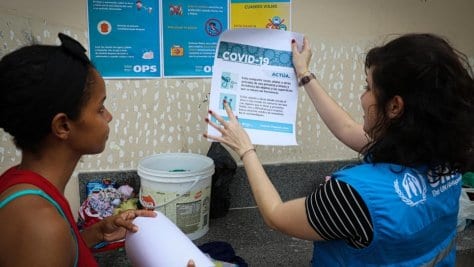
Even without the threat of a growing pandemic, immigrants and refugees face many challenges in their day-to-day lives and usually do so without the support of the family and community of their homelands. The most fundamental challenge for many is simply a language barrier, but in COVID-19, this could be a critical one. Access to information and understanding the disease and its symptoms is significantly limited when you don’t speak or read English. Many immigrants and refugees are not aware of their own rights or of different resources that are available for them if needed. The simple act of ensuring all information about COVID-19 and available support is available in multiple languages can make a difference. The city of Seattle, WA, sets a great example; the LA County Office of Immigrant Affairs and the City of Boston, MA, have all made sure that information regarding COVID-19 resources is available in languages such as Spanish, Amharic, Tigrinya, Vietnamese and Mandarin.
We also see many local communities and organizations coming together to inform immigrants and refugees about resources and assistance during the COVID-19 crisis (this includes communities in Illinois, Indiana, Atlanta, GA, New York City, Texas, and more). Currently, financial assistance is mainly offered by non-government funds such as the COVID-19 Relief Fund for Washington Undocumented Folks or the Oakland Undocumented Relief Fund.
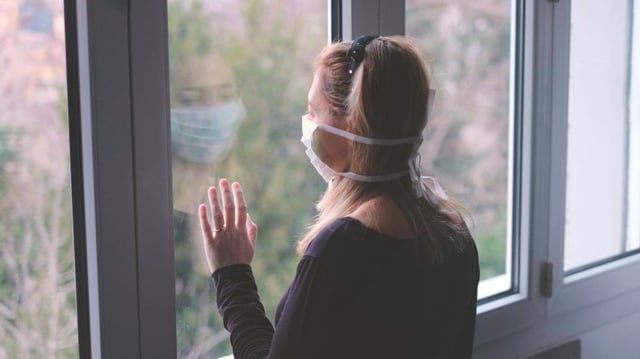
Movement restrictions and stay-at-home orders aimed to stop the spread of the coronavirus also bear a risk of increasing domestic violence and child abuse. Domestic violence usually rises whenever families spend more time together and could also be affected by stress and social isolation. Indeed, since the COVID-19 outbreak, with more and more families worldwide in lockdown, there has been a rise in abuse reports to support lines. Quick to act against this worrying effect, we see many local governments, organizations, and communities offering essential services and support to help those who are exposed to domestic violence. The World Health Organization has released a report discussing what can be done to address violence against women during COVID-19.
In the city of Ottawa, CA, there is a text and chat service that provides support for those experiencing violence and abuse at home. Local government leaders and state officials can use their voices to raise community awareness. Illinois State Senator Laura Fine has given a great example by sharing coloring sheets for Child Abuse Prevention Month on her social media account. Buffalo Grove’s chief of police, who is also president of the International Association of Chief of Police, addressed concerns about rising domestic violence in an interview with ABC News. Cities and organizations like the Waubonsee Community College in Illinois can utilize their official social media channels to share information on available resources.
These extraordinary acts of kindness and solidarity show us that local governments, communities, residents, and non-profits are collaborating all across the US to assist those more vulnerable to the pandemic and its financial and social impact. Local governments have the ability and opportunity to lead these collaborations and mitigate the burden that the COVID-19 outbreak has on at-risk communities. We will continue to share more inspiring stories and initiatives by local government leaders working tirelessly to support their local residents, businesses, and first responders while adapting to the new normal.
Our Coronavirus Action Plan explains how Zencity’s technology is helping over 130 cities and counties across the U.S. face the COVID-19 outbreak and champion their communities through this crisis.
%20copy-1.png?width=544&height=120&name=Logo_black%20(1)%20copy-1.png)



